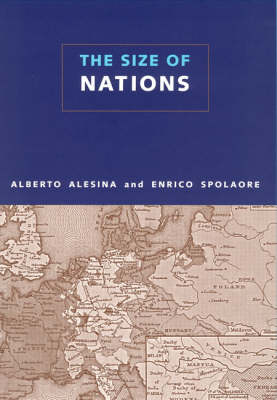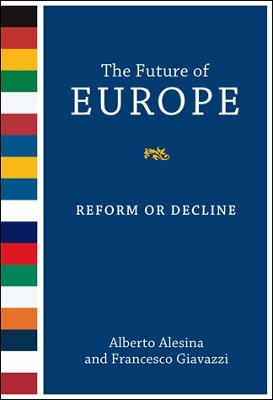The MIT Press
2 total works
The authors of this timely and provocative book use the tools of economic analysis to examine the formation and change of political borders. They argue that while these issues have always been at the core of historical analysis, international economists have tended to regard the size of a country as "exogenous," or no more subject to explanation than the location of a mountain range or the course of a river. Alesina and Spolaore consider a country's borders to be subject to the same analysis as any other man-made institution. In The Size of Nations, they argue that the optimal size of a country is determined by a cost-benefit trade-off between the benefits of size and the costs of heterogeneity. In a large country, per capita costs may be low, but the heterogeneous preferences of a large population make it hard to deliver services and formulate policy. Smaller countries may find it easier to respond to citizen preferences in a democratic way. Alesina and Spolaore substantiate their analysis with simple analytical models that show how the patterns of globalization, international conflict, and democratization of the last two hundred years can explain patterns of state formation. Their aim is not only "normative" but also "positive"-that is, not only to compute the optimal size of a state in theory but also to explain the phenomenon of country size in reality. They argue that the complexity of real world conditions does not preclude a systematic analysis, and that such an analysis, synthesizing economics, political science, and history, can help us understand real world events.
A provocative argument that unless Europe takes serious action soon, its economic and political decline is unavoidable, and a clear statement of the steps Europe must take before it's too late.
Unless Europe takes action soon, its further economic and political decline is almost inevitable, economists Alberto Alesina and Francesco Giavazzi write in this provocative book. Without comprehensive reform, continental Western Europe's overprotected, overregulated economies will continue to slow-and its political influence will become negligible. This doesn't mean that Italy, Germany, France, and other now-prosperous countries will become poor; their standard of living will remain comfortable. But they will become largely irrelevant on the world scene. In The Future of Europe, Alesina and Giavazzi (themselves Europeans) outline the steps that Europe must take to prevent its economic and political eclipse.
Europe, the authors say, has much to learn from the market liberalism of America. Europeans work less and vacation more than Americans; they value job stability and security above all. Americans, Alesina and Giavazzi argue, work harder and longer and are more willing to endure the ups and downs of a market economy. Europeans prize their welfare states; Americans abhor government spending. America is a melting pot; European countries-witness the November 2005 unrest in France-have trouble absorbing their immigrant populations. If Europe is to arrest its decline, Alesina and Giavazzi warn, it needs to adopt something closer to the American free-market model for dealing with these issues.
Alesina and Giavazzi's prescriptions for how Europe should handle worker productivity, labor market regulation, globalization, support for higher education and technology research, fiscal policy, and its multiethnic societies are sure to stir controversy, as will their eye-opening view of the European Union and the euro. But their wake-up call will ring loud and clear for anyone concerned about the future of Europe and the global economy.

